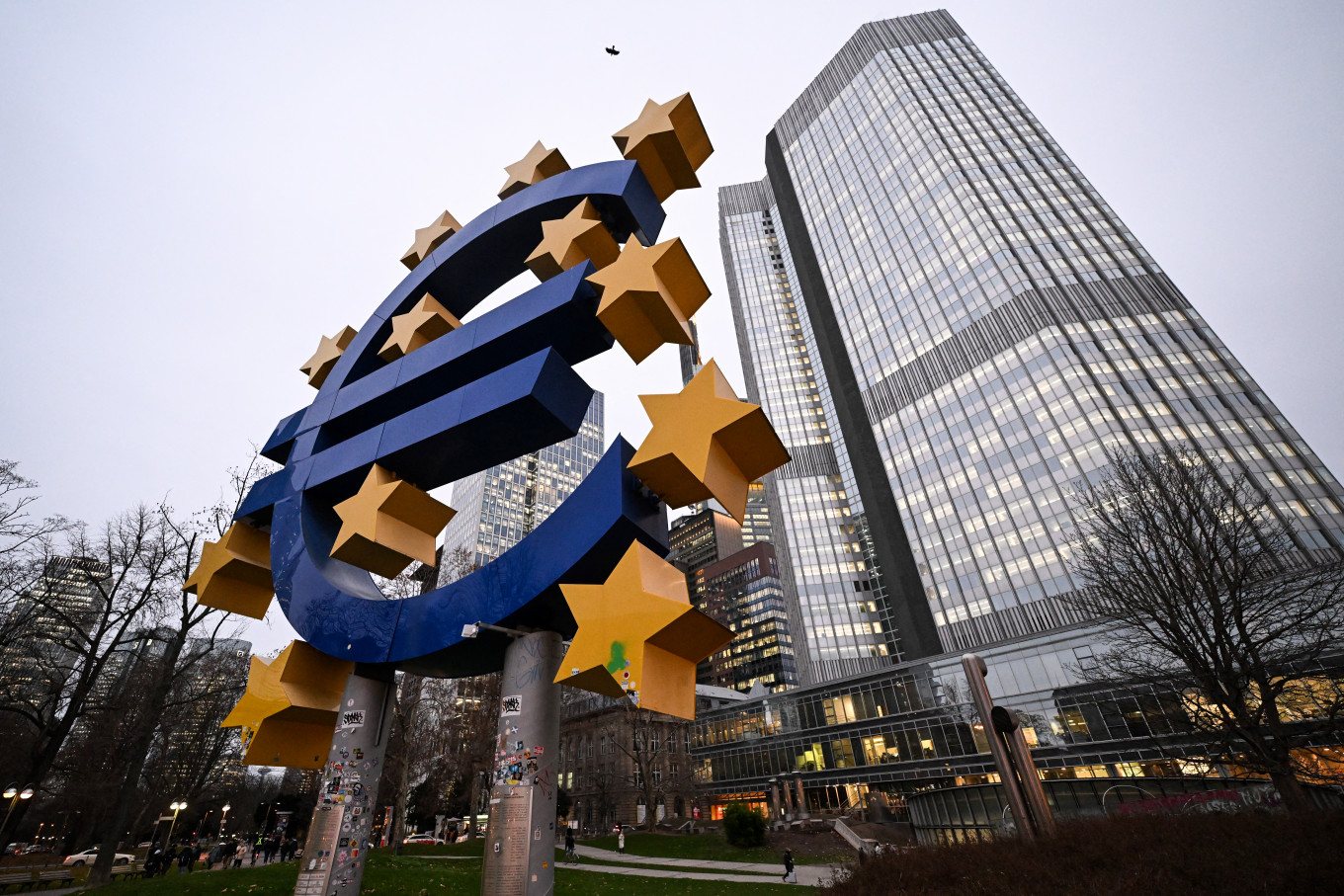Popular Reads
Top Results
Can't find what you're looking for?
View all search resultsPopular Reads
Top Results
Can't find what you're looking for?
View all search resultsTime for Germany's 'sugar rush' to hit
One of the most transformative economic policy shifts in a turbulent year is about to kick in, but there is some trepidation about how all this spending and reform will actually pan out.
Change text size
Gift Premium Articles
to Anyone
O
ne of the most transformative economic policy shifts in a turbulent year, Germany's market-moving fiscal boost, is about to kick in, but there is some trepidation about how all this spending and reform will actually pan out.
Despite all the focus on Washington's sweeping upheavals over the past nine months, arguably the biggest macro market driver of 2025 has been Germany's post-election plan to lift its stifling, self-imposed debt brake and spend almost a trillion euros on defense and infrastructure.
While the multi-year investment plan was always expected to truly begin hitting in 2026, markets almost immediately priced in a significant boost to the long-dormant growth potential of Europe's biggest economy as well as expected ripple effects across the continent.
This explains a sizable chunk of the dollar's drop this year, as much as anything that has happened in Washington.
The euro's 13 percent surge against the greenback this year has all come since Germany's election in February. And this fiscal boost is one of the main reasons investors think the European Central Bank will not cut interest rates below the current 2 percent level through next year.
Expectations of a borrowing binge have pushed up 10-year German bund yields almost 30 basis points this year, even as the ECB has cut rates by a full percentage point. And 30-year rates have climbed about 70bp.
But the real lift came to the equity market, with the German DAX benchmark up 22 percent in the year to date and the mid-cap MDAX index also up over 20 percent, both outstripping Wall Street benchmarks by almost 10 percentage points. The electrified euro defense sector has climbed a whopping 75 percent in 2025 thus far, more than three times the gains for Wall Street's megacap “Magnificent Seven”.
And even though euro zone aggregate corporate earnings growth estimates for 2025 have dwindled to zero, forecasts for 2026 have inflated to more than 12 percent.
In short, there is quite a lot riding on Germany delivering.
The problem is that the excitement around the plans went a bit flat over the summer amid wrangling over how and where the spending should be allocated, what vehicles should be used and how much of the other promised reforms will emerge in 2026.
Deutsche Bank argues that investor frustration at the lack of delivery so far is "somewhat moot", as nothing was ever likely to happen before the final quarter of this year anyway, as the 2025 budget law was only passed last month.
Chief economist Robin Winkler reckons the 2025 federal government draft implies a steep rise in spending in the fourth quarter, not least because the deficit through July was only running at about 41 billion euros against a plan for 143 billion euros, or 3.3 percent of GDP.
However, he said investor concerns about existing spending items being shifted to the country's infrastructure fund are more "substantive" as this means less of this fund may now be used for new investment projects.
As a result, Deutsche Bank said its original estimate that the overall plan could lift potential German growth by about half a percentage point to 1 percent by the end of the decade looks "increasingly hopeful".
"The sugar rush is coming and likely to boost cyclical growth for a while," Winkler wrote late last month. "Yet the long-term growth implications look dimmer than in the spring."
What's just as important for business confidence, Deutsche argues, is the government's structural reform plan, the "protein" to back up the "fiscal sugar".
And there is mixed progress on these. Areas such as reducing energy levies and red tape or speeding up planning processes are in the works for next year, but there is less movement on reforming social security, pension systems and work incentives or on changing the longer-term debt brake.
Economic data is sending mixed signals. German firms' six-month business expectations, captured by the monthly Ifo survey, hit the highest level in more than three years in August, but slipped back lower last month.
Many factors are at play in that, of course, including the US tariff drama and the historically high effective euro exchange rate.
What is more, other surveys show an all-sector German business confidence reading at 16-month highs last month and expectations among service firms at the loftiest point since May 2024.
But the new government's fiscal and reform plans remain the elephants in the room.
ING's Carsten Brzeski said the size of the German fiscal boost remains significant, and he argued that the money will reach the economy.
"However, the risk has now risen that, next to fiscal stimulus, there will be very few reforms and measures to structurally boost German competitiveness."
Europe's economies and investors are watching with bated breath.
---
The writer is a columnist for Reuters.
Your Opinion Matters
Share your experiences, suggestions, and any issues you've encountered on The Jakarta Post. We're here to listen.
Thank you
Thank you for sharing your thoughts. We appreciate your feedback.











